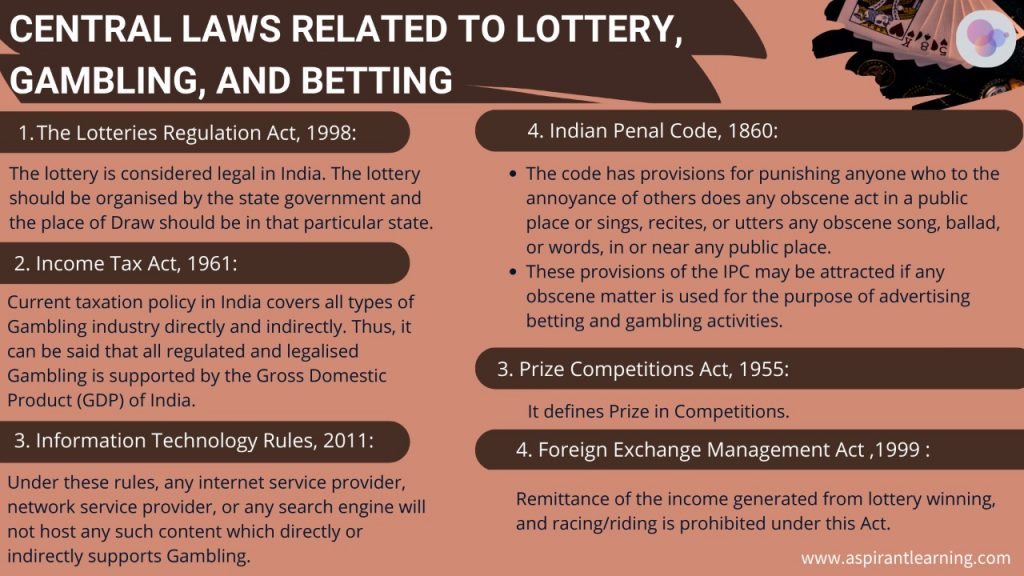News highlights:
The Ministry of Electronics and Information Technology (MeitY) has released draft amendments in relation to Online Gaming.
Key Takeaway:
- The idea is to ensure that online games conform to Indian laws and to safeguard users against potential harm.
- The draft proposes a self-regulatory mechanism which, in future, may also regulate the content of online gaming.
Proposed changes on the amended draft:
- Objective:
- The proposals aim to safeguard users’ interests by introducing set procedures and norms for verification and user engagement.
- Definition:
- The draft proposal defines what constitutes an online game.
- It is a game offered on the internet and is accessible by a user through a computer resource if he/she deposits with the expectation of earning winnings.
- Winning constitutes any prize, in cash or kind, intended to be given to the participant on the user’s performance and following the rules of such an online game.
- This addresses the discourse in the sector about the definitions of a ‘game of skill’ and ‘game of chance’.
- The term ‘game of skill’ had been used in the Public Gambling Act (1867) but had not been defined.
- Greater transparency:
- The proposal endeavours to provide greater transparency. The game operators would have to verify users on the platform and provide them with the terms of services.
- Operators would have to inform the user about the policy related to the withdrawal or refund of their deposit, measures taken for its protection, the manner and distribution of winnings and the fees and other charges to be paid by the user.
- Protection from Risk:
- Operators should inform about the risk of potential financial loss and addiction associated with the game.
- The self-regulating bodies’ framework must also include safeguards to protect children.
- Addiction is to be combated using repeated warning messages should the user exceed a reasonable duration while playing a specific game.
- Verification:
- The operator would be expected to verify the identity of the user.
- The Draft also puts forth measures for users who register their devices from India or use their services from India to voluntarily verify their accounts.
- The information gathered for verification cannot be used for any other purpose without the user’s content.

Reason for a ban on Online Gaming:
- Issues Related to Online Gaming:
- Many social activists, government officials and those in law enforcement believe that online games like rummy and poker are addictive in nature, and, when played with monetary stakes, lead to depression, mounting debts and suicides.
- Reportedly, there have been a few instances where youngsters, faced with mounting debts due to losses in online games, have committed other crimes like theft and murder.
- The World Health Organisation (WHO) announced a plan to include “gaming disorder” as a mental health condition.
- Susceptible to Manipulation:
- Online games are susceptible to manipulation by the websites operating such games, and there is a possibility that users are not playing such games against other players. Still, against automatic machines or ‘bots’, wherein there is no fair opportunity for an ordinary user to win the game.
Need to Regulate the Gaming Industry:
- Lack of regulations:
- India’s online gaming industry lacks regulatory oversight and falls into a ‘grey area’.
- India currently has no comprehensive legislation concerning the legality of online gaming or boundaries that specify applicable tax rates within the betting and gambling industry.
- The development comes when more and more states are bringing legislation seeking some order in the online gaming sector.
- Online gaming in India is allowed in most parts of the country. However, different states have legislation about whether online gaming is permitted.
- Ilegal gaming:
- Well-regulated online gaming has its own advantages, such as economic growth and additional benefits.
- However, shifting users to grey or illegal offshore online gaming apps not only results in a loss of tax revenue for the State and job opportunities for locals but results in users needing help to avail remedies for any unfair behaviour or refusal to pay out winnings.
Way Forward:
- Robust Policy Framework:
- India’s e-gaming industry needs robust policy frameworks and digital infrastructure to fulfil its potential, maximise revenue and foray toward being a global leader.
- A government body that oversees operations, drafts progressive policies preventing societal issues, suitably classifies games of skill or chance, ensures consumer protection and combats illegality and crime is required.
- Cooperation between Government and Gaming Companies:
- Gaming companies should also continue to work with the government to promote responsible gaming by educating gamers and establishing best practices like conducting KYC checks, user authentication, etc, to prevent illegal activities and financial dealings on their platforms.
Pic Courtesy: The Hindu
Content Source: The Hindu



